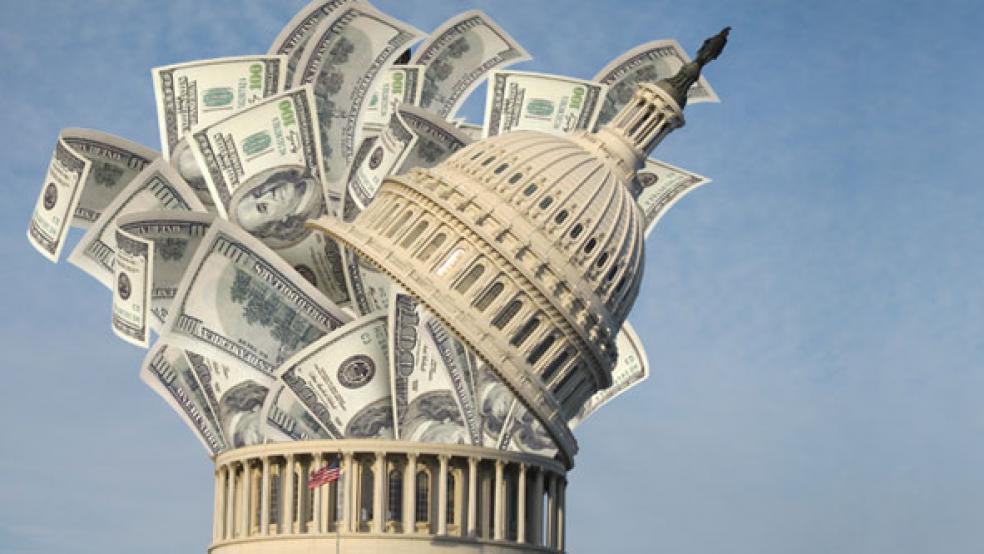Over the past five years, the Department of Justice has showered more than $10 billion of special grants on federal, state and local government agencies and non-government groups for everything from aerial drug interdiction efforts to juvenile justice initiatives and Native American justice systems.
While much of those funds have gone for useful activities, approximately $100 million went for “questionable” expenditures or funds that “could have been put to better use,” according to Justice Department Inspector General Michael E. Horowitz.
Related: Justice Department unveils 'largest takedown ever' to combat Medicare fraud
What’s more, nearly 50 grant-related audits during that period turned up evidence of criminal activity that led to 13 convictions and more than $6.1 million in restitution and recoveries.
In January, for example, Big Brothers Big Sisters of America officials agreed to pay $1.6 million to the federal government to settle allegations related to making false claims in connection with a grant program. The non-profit mentoring group based in Philadelphia was found to have comingled federal grant funds with other operating funds.
In another fraud case, two employees of the Alameda Heights Outreach Center in Dallas pleaded guilty in August 2014 to the theft of $75,000 in Justice Department grant funding for a program to mentor youth. The employees were sentenced to three years of probation and ordered to make restitution of the funds.
“Over the past several years, [the Office of Justice Programs] and the Department have made positive strides in improving their grants management, Horowitz said in testimony last week to the House Committee on Oversight and Government Reform.
Related: National fund to help victims of Orlando massacre
Yet the Department “must undertake robust efforts to ensure that the billions it gives out in grants are appropriately spent and that the public receives the expected and desired return on its investment,” he said.
In the greater scheme of things, the misuse or theft of $100 million in grant funds for justice related programs amounts to small fraction of the total expenditures. The Office of Justice Programs (OJP) provides “innovative leadership to federal, state, local, and tribal justice systems, by disseminating state-of-the art knowledge and practices across America,” the agency says on its website.
Because state and local governments and organizations are principally responsible for law enforcement, the Justice Department enters into partnerships with local authorities and provides grant money to attempt to improve the quality of law enforcement and identify the “most pressing crime-related challenges” confronting the criminal justice system.
Horowitz cautioned that while the rate of mishandling or theft of the federal funding is small for now, the prospects for fraud and other wrongdoing would mount as Congress spends more and more money on criminal justice programs. At a time when the nation is struggling with an epidemic of terrorist attacks on Americans and racially motivated killings, Congress and the Justice Department are certain to increase anti-crime and compensation funding in the months to come.
In the case of the Justice Department’s Crime Victims Fund, for example, Congress in 2015 authorized Justice to distribute more than $2.3 billion to victims and their families – or three times more than was approved for fiscal 2014. Congress raised the total to more than $3 billion for fiscal 2016. More funding likely will be needed to compensate the families of victims of shootings.
Related: Justice Department changes social media policy after rogue tweet criticizing CNN
“This significant increase requires OJP to have sufficient controls and oversight to ensure that the funds are used appropriately,” Horowitz said in his testimony.
Moreover, he said, the Justice Department has to find new and improved ways to “interact with funding recipients to ensure that funds are expended for their stated purposes.”
Over the years, the Justice Department has provided federal agencies including the FBI and the Drug Enforcement Administration with over $3.7 million in grants to acquire unmanned aircraft or drones for surveillance or illegal drug trafficking interdiction. Yet much of that money was never used for its intended purpose.
Horowitz said that his office uncovered a related case in which two local jurisdictions spent $234,000 of DOJ funds to purchase drones that, because of “technical and regulatory limitations,” ended up never being used operationally.
Related: Medicaid Fraud Climbed to a Whopping $29 Billion Last Year
In another case, the Navajo Division of Public Safety in 2015 was found to have made over $35 million in “questionable uses of grant funding” intended to design and build a tribal jail and rehabilitation center for adult offenders in the Arizona-New Mexico area.
“Most of the questioned costs were related to the construction of two correctional facilities that were built with capacities that were at least 250 percent larger than needed, and at an excess cost of more than $32 million,” according to Horowitz.





